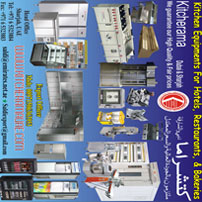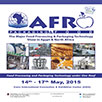

M a r k e t N e w s
East Africa: Agriculture Still the Greatest Source of Jobs in the Region
Posted on : Tuesday , 14th February 2017
Despite East Africa's increased public investment in infrastructure, an area long considered a sure source of employment for locals, the region continues to depend on the agricultural sector for jobs.
But experts warn that the agricultural sector fuels underemployment, which is a common feature in many countries in East Africa. In Uganda, underemployment is just 9.3 per cent, while in Rwanda, this figure is even lower at two per cent.
The United Kingdom's Department for International Development (DfID) in its economic development strategy for 2017 notes that the high under-employment rates in these economies create many jobs that are highly unsafe and offer no scope for progress.
In Uganda, Minister of Finance Matia Kasaija said the agriculture sector employs 73 per cent of the population but contributes just 24 per cent of the gross domestic product. This suggests that the population outside the formal labour force engages in some kind of work for a few hours and at low wages.
A similar problem exists in other East African countries, with Tanzania's Finance Minister Dr Phillip Mpango telling parliament that agriculture and trade, the two sectors that employ the largest percentage of the population, also contribute the least to the country's economic growth.
For example, between January and September last year, agriculture grew by just 2.1 per cent and trade by 5.6 per cent. This compares poorly with mining's 15.8 per cent, transportation and storage at 15.5 per cent, information and communications technology at 13.4 per cent and financial services at 11.5 per cent.
Youth unemployment
This incongruence between the number of people employed by the agricultural centre against its contribution to the economy, according to Ramathan Ggoobi, an economics lecturer at Makerere University Business School, speaks volumes about the failure by many African countries to transform the structure of their economies to create productive jobs for young people.
Experts say that instead of aiming for transformation of their economies, countries in the region go for stable macroeconomic indicators.
Dr Patrick Birungi, the planning director at National Planning Authority, says that with the economic growth afforded by stable macroeconomic indicators, there won't be as many jobs since the investments attracted to such economies are few and small in nature.
According to Rwanda's Ministry of Labour and Public Service, the failure by investors to grow employment opportunities is causing job insecurity.
In Rwanda, 125,000 young people are estimated to join the labour force a year; while the economy is able to generate 146,000 jobs on annual basis, according to the latest Integrated Household Living Conditions Survey.
Analysts in Rwanda say that since the jobs generated are less than the number of unemployed, employers are laying off workers in the name of cutting costs.
DfID notes that job insecurity and poor labour rights are widespread in low-income countries like Uganda, Rwanda and Tanzania.
To solve these problems, Dr Birungi says countries need to focus on production investment, which would include industrialisation. The other alternative is to focus on getting jobs through investment in the public sector.
Increased investment
East African countries have been investing in infrastructure, but a lot of the money is exiting these countries because of the failure to negotiate an adequate local content component.
"We must improve contract negotiation to allow for better local content," Dr Birungi said.
He suggests that countries must negotiate specific local content ratios.
"We could have in our contracts that for every foreign engineer a contractor hires, 20 locals should be given jobs," he says.
This would take advantage of the heavy investments the region has made in the infrastructure sector.
Uganda's energy and roads sectors have in the past 10 years seen increased investment. By the end of this financial year in June, the roads and energy sectors will have received Ush6.2 trillion ($1.7 billion).
These two sectors have been receiving the largest share of Uganda's budget for some time and this investment is expected to continue with the Ministry of Finance promising to allocate Ush7.9 billion ($2.2 billion) for the coming financial year.
Audit firm PricewaterhouseCoopers notes that Tanzania has in recent years invested heavily in infrastructure, a trend that is expected to continue for a while. The audit firm says that Tanzania has put $19 billion in pipeline, transport and utility projects.
According to Dr Birungi, the demand for local content will only work if the population has the required skills.
DfID points out that this is not yet the case and that countries in the region need to invest more in human capital, nutrition, family planning and infrastructure for a healthy and educated population, and better access to assets such as land and finance.
Source : allafrica.com


































